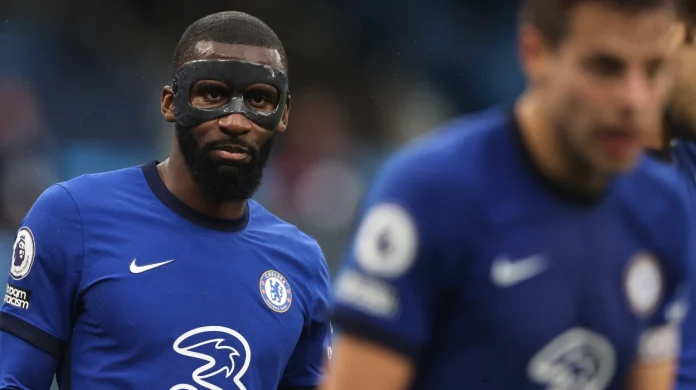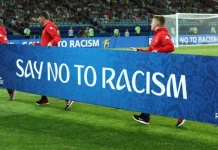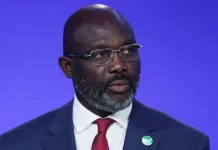The 2025 FIFA Club World Cup match between Real Madrid and Pachuca was overshadowed by a serious allegation of racial abuse involving Real Madrid defender Antonio Rüdiger and Pachuca’s captain Gustavo Cabral. The incident, which occurred late in the match, has sparked a significant controversy marked by conflicting accounts, the activation of FIFA’s anti-racism protocol, and broader discussions about racism in football. This article explores the details of the incident, the reactions from players and officials, the ongoing investigation, and the wider implications for the sport.
Incident Overview: The Alleged Racial Abuse
The incident took place during stoppage time of the match held at the Bank of America Stadium in Charlotte, North Carolina. Real Madrid was leading 3-1 when Rüdiger and Pachuca captain Gustavo Cabral collided in the penalty area. Following the physical confrontation, Rüdiger approached referee Ramon Abatti and reported that he had been subjected to racial abuse by Cabral.
Referee Abatti responded by crossing his arms in front of his chest, a gesture that FIFA has designated as the activation of its three-step anti-racism protocol. This protocol obliges the referee to take immediate action when racist behavior is observed or reported, including halting the match, suspending it temporarily, and potentially abandoning the game if the abuse persists. In this case, the match concluded shortly after the incident, with Real Madrid securing the victory.
Real Madrid’s coach Xabi Alonso publicly supported Rüdiger’s claims, stating,
“That’s what Rüdiger said, and we believe him. It is crucial to maintain a zero-tolerance policy in these situations. FIFA is currently conducting an investigation, and that’s all I can share”.
Alonso’s stance emphasizes the club’s commitment to combating racism and supporting its players.
Conflicting Accounts and Denials
While Rüdiger and his club stand firmly behind the allegation, Gustavo Cabral has vehemently denied making any racist remarks. Speaking to reporters after the match, Cabral explained,
“It was just a scuffle; we collided, and he said I hit him with my hand, leading to an argument where the referee signaled for racism. There was nothing of the sort. It was merely a phrase we often use in Argentina. I said ‘cagón de mierda’ (a derogatory term for coward) to him, and that was the extent of it. Things got a bit heated as we were heading to the locker room, and he seemed to want to confront me, but it was just a moment of high tension.”
Cabral’s denial introduces a significant element of dispute into the case. The difference between a racial slur and a heated insult common in Argentine football culture is substantial, and this ambiguity complicates the investigation. It remains unclear whether the alleged abuse originated directly from Cabral, another player, or possibly from spectators.
FIFA’s Anti-Racism Protocol and Investigation
FIFA’s anti-racism protocol, introduced following the 74th FIFA Congress in May 2024, is designed to empower referees and players to confront racism decisively during matches. The crossing of arms by referee Abatti was the first visible step in this protocol, signaling to all present that the incident was taken seriously and would be investigated thoroughly.
FIFA has confirmed that an investigation into the alleged racial abuse is underway but has not yet released a formal public statement. The governing body awaits the referee’s official report before making further announcements. This measured approach reflects the need for due process and careful consideration of all evidence.
Broader Context: Rüdiger’s Experience and Football’s Racism Challenge
Antonio Rüdiger is no stranger to racial abuse. Throughout his career at Chelsea, AS Roma, and Real Madrid, he has faced discrimination both on the pitch and online. In 2021, Rüdiger wrote in The Players’ Tribune that “nothing ever really changes” regarding racism in football, though he remains committed to fighting discrimination.
The incident at the Club World Cup has reignited discussions about the persistent challenge of racism in football. Critics have pointed out that FIFA has faced backlash for reducing or removing anti-racism campaigns and messaging during the 2025 Club World Cup in the United States, a departure from previous tournaments like the 2022 World Cup in Qatar and the 2023 Women’s World Cup in Australia and New Zealand.
Human rights organizations and campaigners have urged FIFA to strengthen its anti-discrimination efforts, arguing that incidents like Rüdiger’s highlight the urgent need for consistent and visible anti-racism initiatives.
Reactions from Clubs, Officials, and Fans
Real Madrid’s public support for Rüdiger has been unequivocal. Coach Xabi Alonso’s statement,
“We stand behind Toni and will see what unfolds. The FIFA protocol has been activated, and we are supporting him. It is intolerable, and we trust what he has reported,”
reflects the club’s zero-tolerance stance on racism.
On the other hand, Pachuca’s coach Jaime Lozano expressed surprise at the allegations, saying,
“I just learned about this from you; we haven’t discussed it in the locker room. I haven’t talked to Cabral about it, so I can’t provide any explanation or justification. Nothing can justify that, but I will speak with him. Knowing him, this has never occurred with him or any of our Pachuca players in the league. I assure you, I can vouch for my captain.”
Fan reactions on social media have been polarized. Many have expressed solidarity with Rüdiger, emphasizing the importance of standing against racism. Others have called for a fair and thorough investigation, cautioning against premature judgments given the conflicting accounts.
The Complexity of Racism Allegations in Football
This incident underscores the complexities involved in addressing racism in football. On one hand, immediate support for alleged victims is crucial to combat discrimination and foster an inclusive environment. On the other hand, ensuring due process and investigating all sides fairly is essential to maintain integrity and trust in the sport.
The ambiguity surrounding the source and nature of the alleged abuse complicates the situation. Whether the abuse came from an opponent, a teammate, or the crowd affects the investigation’s direction and potential sanctions.
The Need for Stronger Anti-Racism Measures
The Rüdiger incident highlights the ongoing need for robust anti-racism measures in football. FIFA’s anti-racism protocol is a positive step, but incidents continue to occur, suggesting that more comprehensive education, awareness, and enforcement are necessary.
Campaigners argue that FIFA should reinstate and amplify its anti-racism campaigns, including visible messaging during tournaments, support for affected players, and harsher penalties for offenders. They also call for collaboration with clubs, leagues, and governments to tackle racism at all levels of the game.
The alleged racial abuse of Antonio Rüdiger during the 2025 FIFA Club World Cup match has sparked a significant controversy marked by conflicting narratives, an ongoing FIFA investigation, and broader debates about racism in football. While Rüdiger and Real Madrid stand firmly behind the claim, Gustavo Cabral’s denial and the lack of clarity about the abuse’s origin complicate the issue.
FIFA’s activation of its anti-racism protocol and the current investigation demonstrate a commitment to addressing such incidents, but critics urge stronger, more visible efforts to eradicate racism from the sport. The incident serves as a reminder of the persistent challenges football faces in creating a truly inclusive and respectful environment for all players.













